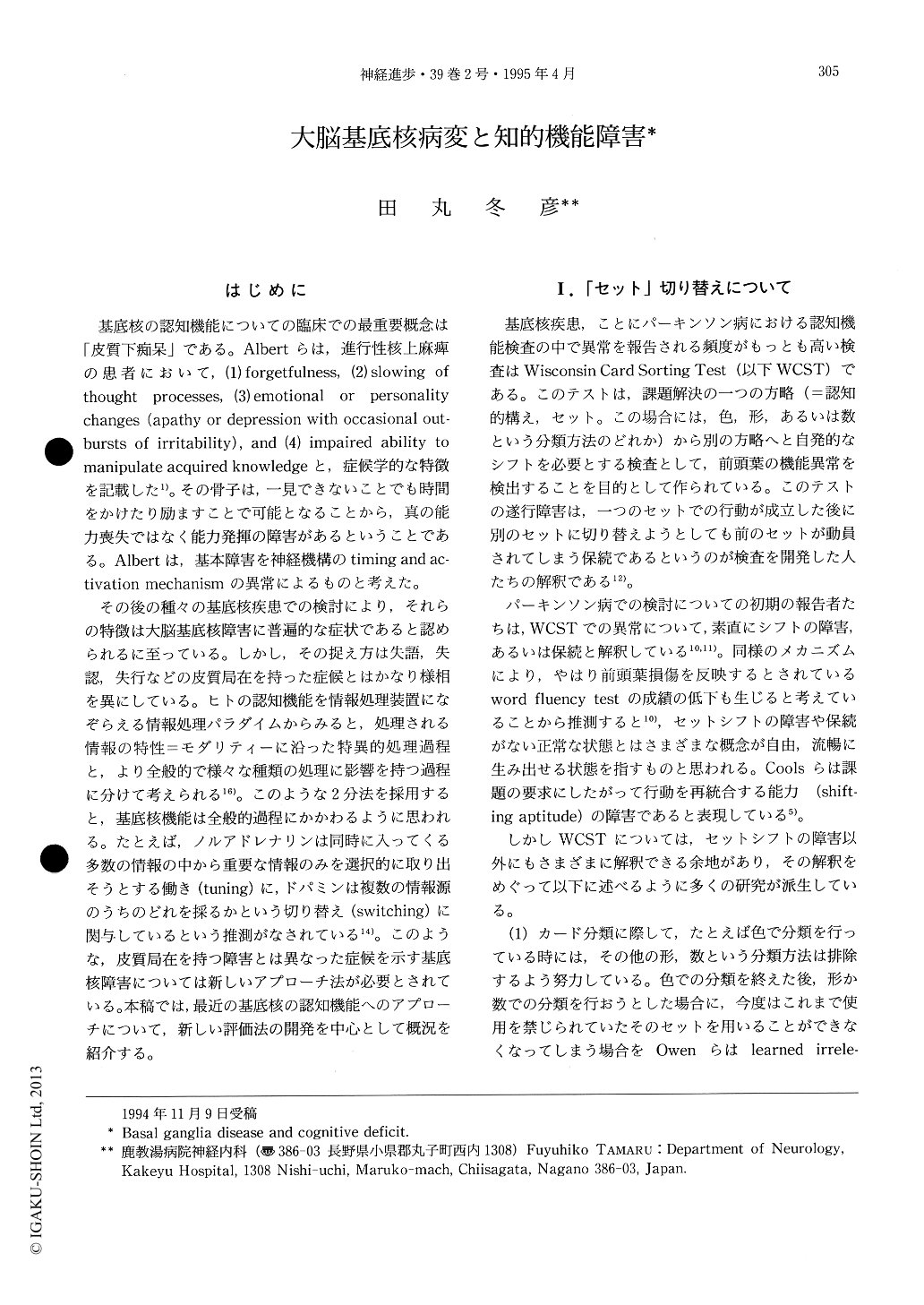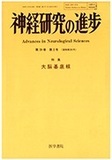Japanese
English
- 有料閲覧
- Abstract 文献概要
- 1ページ目 Look Inside
- サイト内被引用 Cited by
はじめに
基底核の認知機能についての臨床での最重要概念は「皮質下痴呆」である。Albertらは,進行性核上麻痺の患者において,(1)forgetfulness,(2)slowing ofthought processes,(3)emotional or personalitychanges(apathy or depression with occasional outbursts of irritability),and(4)impaired ability tomanipulate acquired knowledgeと,症候学的な特徴を記載した1)。その骨子は,一見できないことでも時間をかけたり励ますことで可能となることから,真の能力喪失ではなく能力発揮の障害があるということである。Albertは,基本障害を神経機構のtiming and activation mechanislnの異常によるものと考えた。
その後の種々の基底核疾患での検討により,それらの特徴は大脳基底核障害に普遍的な症状であると認められるに至っている。しかし,その捉え方は失語,失認失行などの皮質局在を持った症候とはかなり様相を異にしている。
Recent studies on the cognitive deficit of the basal ganglia disease were reviewed. The basal ganglia dysfunction causes a cognitive deficit that is known as “subcortical dementia”. Though the ability or knowledge of patients are not really lost, they find it difficult to give full play to it. Another striking feature is the attention deficit and the slowness of the thought process. Many studies using a psychological technique were carried out to evaluate those cognitive functions and to elucidate fundamental deficits in the cognitive function in patients with basal ganglia diseases.

Copyright © 1995, Igaku-Shoin Ltd. All rights reserved.


